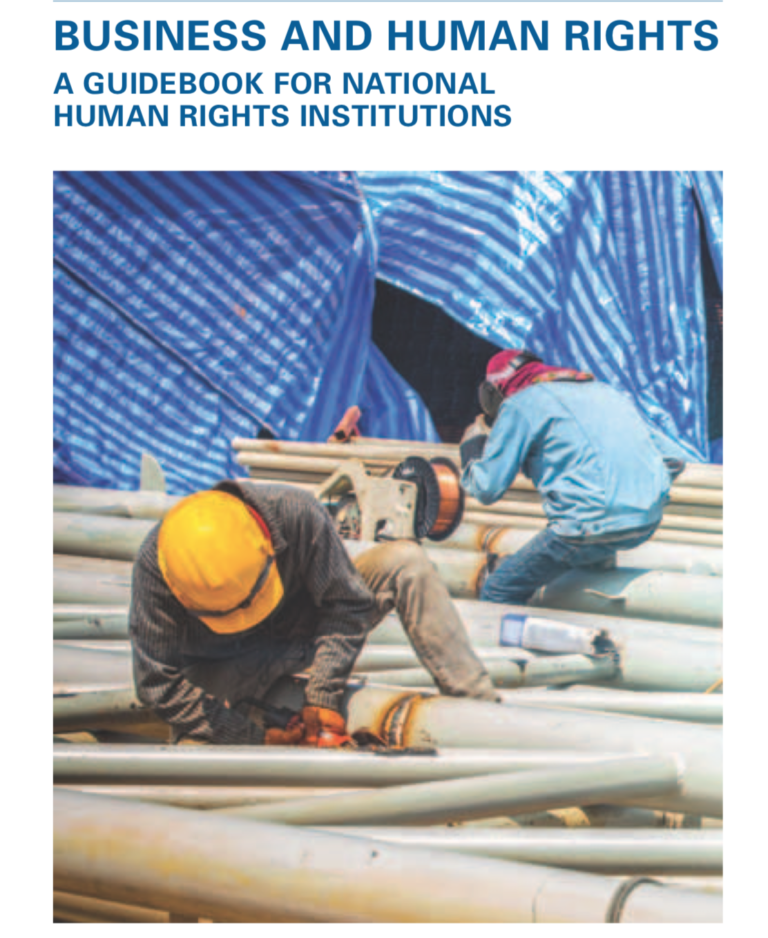In November 2013, the International Coordinating Committee for the Promotion and Protection of Human Rights (ICC) and the Danish Institute for Human Rights (DIHR) published Business and Human Rights: A Guidebook for National Human Rights Institutions. The Guidebook is accompanied by an E-learning which includes modules that participants can use independently, as well as modules to be taken as part of a facilitated blended learning course that combines a four-week E-learning with a face-to-face training course.
The Business and Human Rights Guidebook for National Human Rights Institutions provides guidance and resources for NHRIs on the business and human rights field, including examples of how NHRIs can use their Paris Principles mandate to engage on business and human rights issues.
The Guidebook includes the following components:
-International human rights law frameworks relevant to business and human rights
-National human rights institutions’ mandate on business and human rights
-The three pillars of the UN Protect, Respect and Remedy Framework and UN Guiding Principles on Business and Human Rights – the state duty to protect, the corporate responsibility to respect and access to remedy
-Selected business and human rights issues, including children’s rights, environment and water, conflict-affected areas and Indigenous Peoples
-NHRI good practice examples in the area of business and human rights
-Regional chapters – currently a chapter on the African region has been published. Other regions will be added during 2014.

